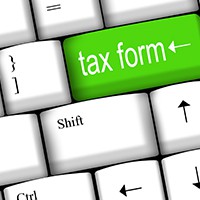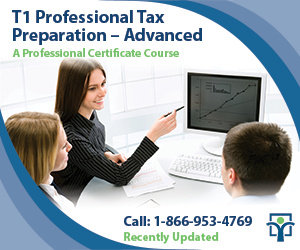Last updated: November 15 2016
Eight Short Snappers: Quick Year-End Tax Planning Tips

There is still plenty of time to look for year-end planning strategies to reduce taxes in 2016 and start 2017 out on a tax-efficient foot. Tax and financial advisors who make time for a planning discussion with families at this time of year may wish to use this checklist of money savers:
1. Investors: Donate Securities. Check non-registered portfolios for securities showing accrued but unrealized gains. Capital gains can be avoided entirely when qualifying securities are transferred to your clients’ favorite charity before year end. A receipt for the donation will be issued to offset taxes payable. That’s a win-win and well worth a solid portfolio review and rebalancing.
2. Families: Review Medical Expenses. Now is the time to sort medical receipts and total up unreimbursed expenses. Medical expenses are best claimed on the return of the spouse with the lower income, if that person is taxable. They can also be claimed for the best 12-month period ending in the tax year. That could be December 1, 2015, to November 30, 2016, for example. To top up the family’s claim, make appointments with eye and ear doctors; buy prescriptions and get that visit to the dentist in within your best 12-month period.
3. Political Contributions. Make deductible political contributions before year end. On the federal return, the allowable claim is 75% of the first $400 given—better than the charitable donation claim. The maximum claim is $650, arrived at when you give $1275. Some provinces have additional provincial credits.
4. Bonus Recipients: Smooth out Year-End Income. Asking the payroll department to annualize taxes on bonus payments is one way to keep more of your year-end bonus for Christmas and avoid a marginal tax rate spike. Also, review your TD1 Personal Tax Credit Return (federal and provincial) for 2017 when it’s available in December. Be sure you pay only the correct amount of tax all year long, and not a penny more.
5. Business Vehicle? Buying a car before year end to maximize capital cost allowance deductions may be worthwhile for those who are self-employed or for employed commissioned salespersons who use their car in their work. Employees will need to have employers complete Form T2200 Declaration of Conditions of Employment. Before the purchase, compare whether the leasing option is better after taxes, and finalize the auto log for the year to make sure the right ratio of expenses is claimed where there is a mixed business and personal use of the vehicle.
 |
6. Moving? Not so Fast in Some Cases. The province of residence for tax purposes is where you live on December 31 of the tax year. If moving before year end to a new job or business in a province with a lower tax rate, income for the whole year will be taxed at that lower rate. But you may wish to wait til January if the move takes you to a province with higher marginal rates. Don’t forget to save by claiming moving expenses, too.
7. Seniors: Plan CPP, RRSP or RRIF Withdrawals Carefully. Planning for early retirement by initiating CPP benefits, withdrawing from a RRSP or planning annuity or RRIF payments requires a look at three important opportunities: income splitting with the spouse, withdrawing up to the top of the current marginal tax bracket, and assessing the effect of withdrawals on clawbacks of benefits received from government.
8. Get Organized: Save Money on Tax Prep Fees. Sorting tax receipts before the end of the year may help you claim more deductions and credits and ultimately be audit-proof, and doing that work yourself will help you save money on the fees tax professionals charge to do that for you. Estimating income with more precision can also help you maximize investments in registered accounts like RRSPs, reduce quarterly instalment payments (next one due on December 15) or donate more to your favorite charity.
Advisors can maximize their potential to be of valuable service to clients in a meaningful way: helping to arrange their affairs within the framework of the law before year end will help them pay the least amount of taxes possible for the 2016 year. A tax-wise investor has the opportunity to become wealthier over the long run, regardless of the economic cycle, by managing tax erosion.
Evelyn Jacks is a best-selling Canadian author of 52 books, including Family Tax Essentials: How to Create a Wealth Purpose with a Tax Strategy. Evelyn is the Founder and President of Knowledge Bureau, a national educational institute focused on Real Wealth Management™. For more information see www.knowledgebureau.com.
©2016 Knowledge Bureau Inc. All Rights Reserved.





